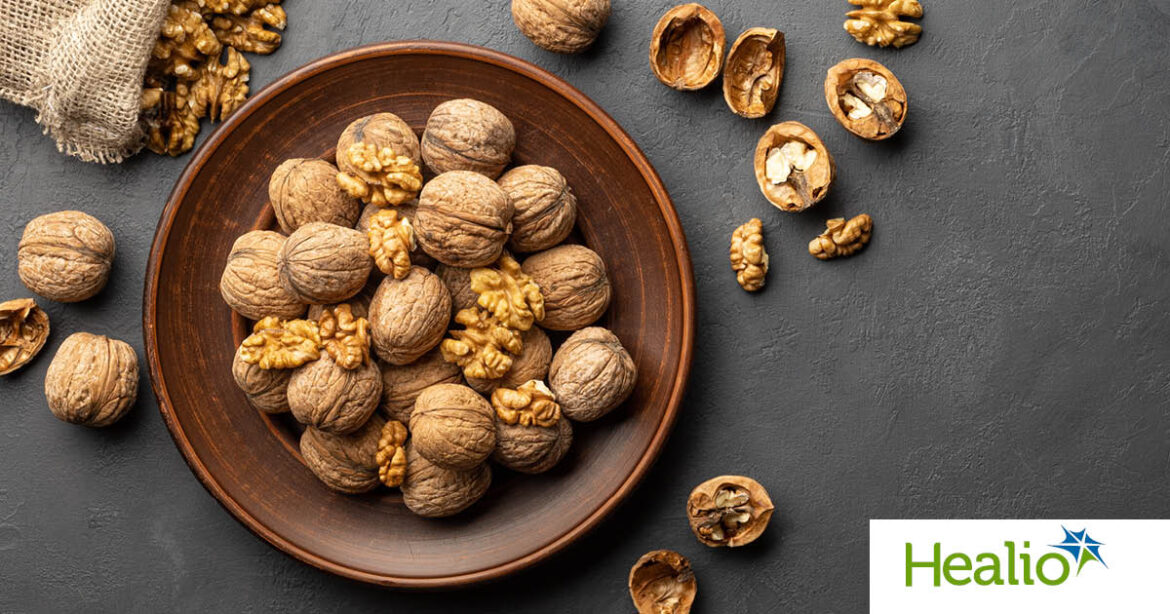January 19, 2021
1 min read
Add topic to email alerts
Receive an email when new articles are posted on
Please provide your email address to receive an email when new articles are posted on .
“
data-action=”subscribe”>
Subscribe
We were unable to process your request. Please try again later. If you continue to have this issue please contact customerservice@slackinc.com.
Back to Healio
A Mediterranean diet combined with green plant-based proteins/polyphenols and restricted in red/processed meat may double intrahepatic fat loss and reduce non-alcoholic fatty liver disease by half, according to study results.
“In this trial, we introduce a new concept of a green Mediterranean diet, further enriched with specific green polyphenols as Mankai, green tea and walnuts and restrict in red and processed meat that might lead to significantly double intrahepatic fat loss, as compared with other healthy nutritional strategies,” Anat Yaskolka Meir, MPH, RD, from the department of epidemiology, Harvard T.H. Chan School of Public Health, Boston, and colleagues wrote.

Patients in the MED and green-MED group consumed 28 g of walnuts per day.
Source: Adobe Stock
In the DIRECT-PLUS 18-month trial, Meir and colleagues randomly assigned 294 patients with abdominal obesity/dyslipidemia into one of three weight loss groups: healthy dietary guidelines, Mediterranean or green-MED. All groups also included physical activity. Patients in the isocaloric MED groups consumed 38 g of walnuts per day. Additionally, the green-MED group consumed 3 to 4 cups per day of green tea and Mankai green shake. Researchers used proton magnetic resonance spectroscopy to quantify the percentage of change in intrahepatic fat (IHF) during the 18-month study.
Patients had an 89.8% retention rate and 78% had eligible follow-up MR spectroscopy. Investigators reported NAFLD prevalence decreased to 54.8% with healthy dietary guidelines group, 47.9% in the MED diet group and 31.5% in the green-MED diet (P = .012).
“Despite similar moderate weight loss in both MED groups, green-MED group achieved almost double IHF% loss (–38.9% proportionally), as compared with MED (–19.6% proportionally; P = .035 weight loss adjusted) and [healthy dietary guidelines] (–12.2% proportionally; P < .001),” the investigators wrote.
Both MED diet groups had significantly higher total plasma polyphenol levels than the healthy dietary guidelines group. Moreover, researchers observed a higher amount of Naringenin and 2-5-dihydroxybenzoic-acid in the green-MED diet group.
“Greater IHF% loss was independently associated with increased Mankai and walnuts intake, decreased red/processed meat consumption, improved serum folate and adipokines/lipids biomarkers, changes in microbiome composition (beta-diversity) and specific bacteria (P < .05 for all),” Meir and colleagues wrote.
Perspective
Back to Top
Stacy Cavagnaro, RD

The Mediterranean Diet is an overall healthy diet with known benefits in the reduction of heart disease, stroke and certain types of cancers. NAFLD is associated with high consumption of sweets, red and processed meats, and lower consumption of vegetables, nuts and olive oil. Due to its health benefits, the Mediterranean Diet is classically the diet recommended for NAFLD. The addition of green tea and Mankai green shake to the traditional Mediterranean Diet recommendations showing a significant improvement in IHF loss is a very interesting finding and should be further investigated and replicated. This may be a relatively low-risk, affordable and easily implemented intervention, which can further accelerate IHF% loss in patients with NAFLD on the Mediterranean Diet.
Stacy Cavagnaro, RD
Registered dietitian for Inflammatory Bowel Disease Medical Home
Digestive Disease & Surgery Institute
Cleveland Clinic
Disclosures: Cavagnaro reports no relevant financial disclosures.
Sources/Disclosures
Collapse
Disclosures:
Meir reports no relevant financial disclosures. Please see the study for a list of all other authors’ relevant financial disclosures.
Add topic to email alerts
Receive an email when new articles are posted on
Please provide your email address to receive an email when new articles are posted on .
“
data-action=”subscribe”>
Subscribe
We were unable to process your request. Please try again later. If you continue to have this issue please contact customerservice@slackinc.com.
Back to Healio

